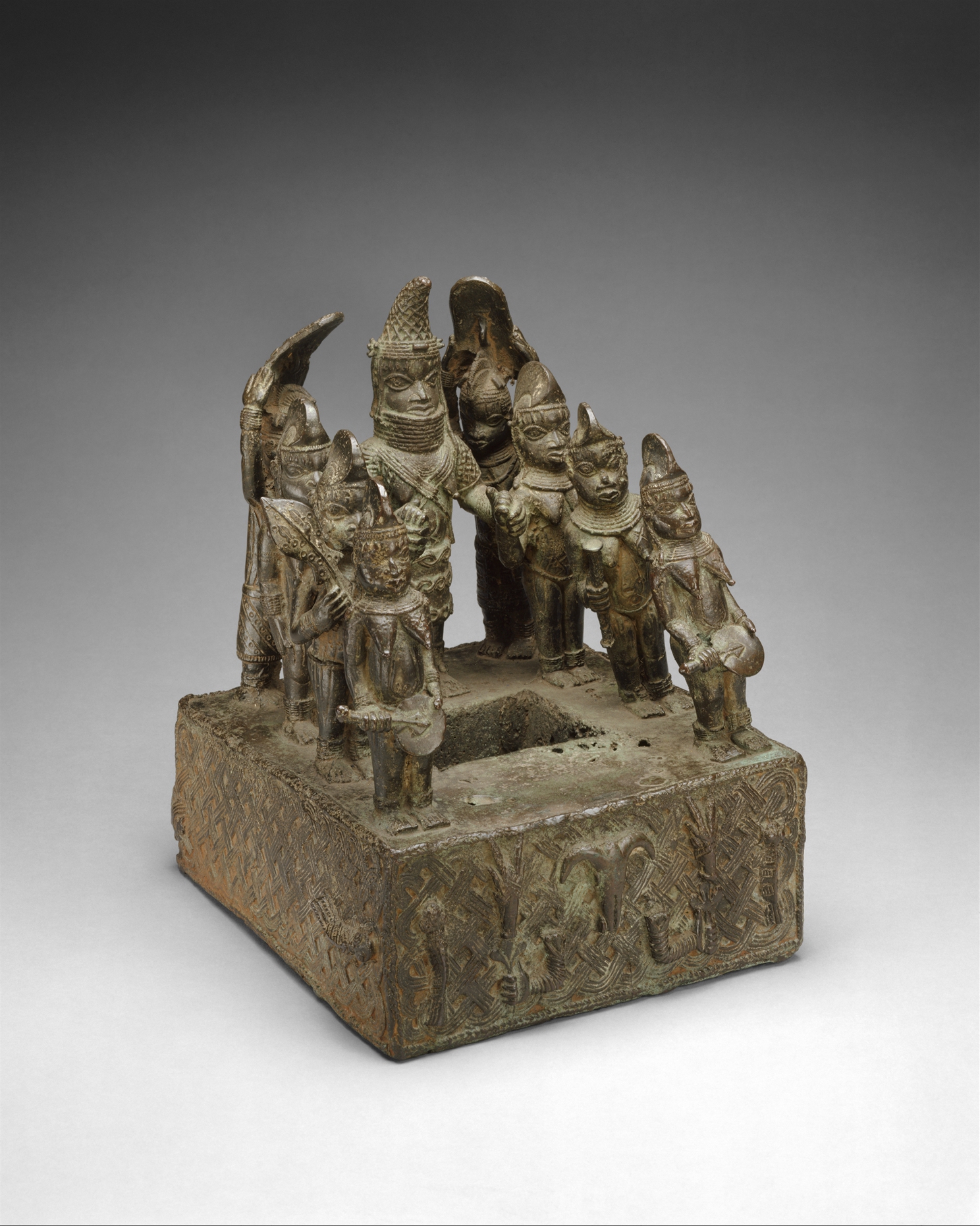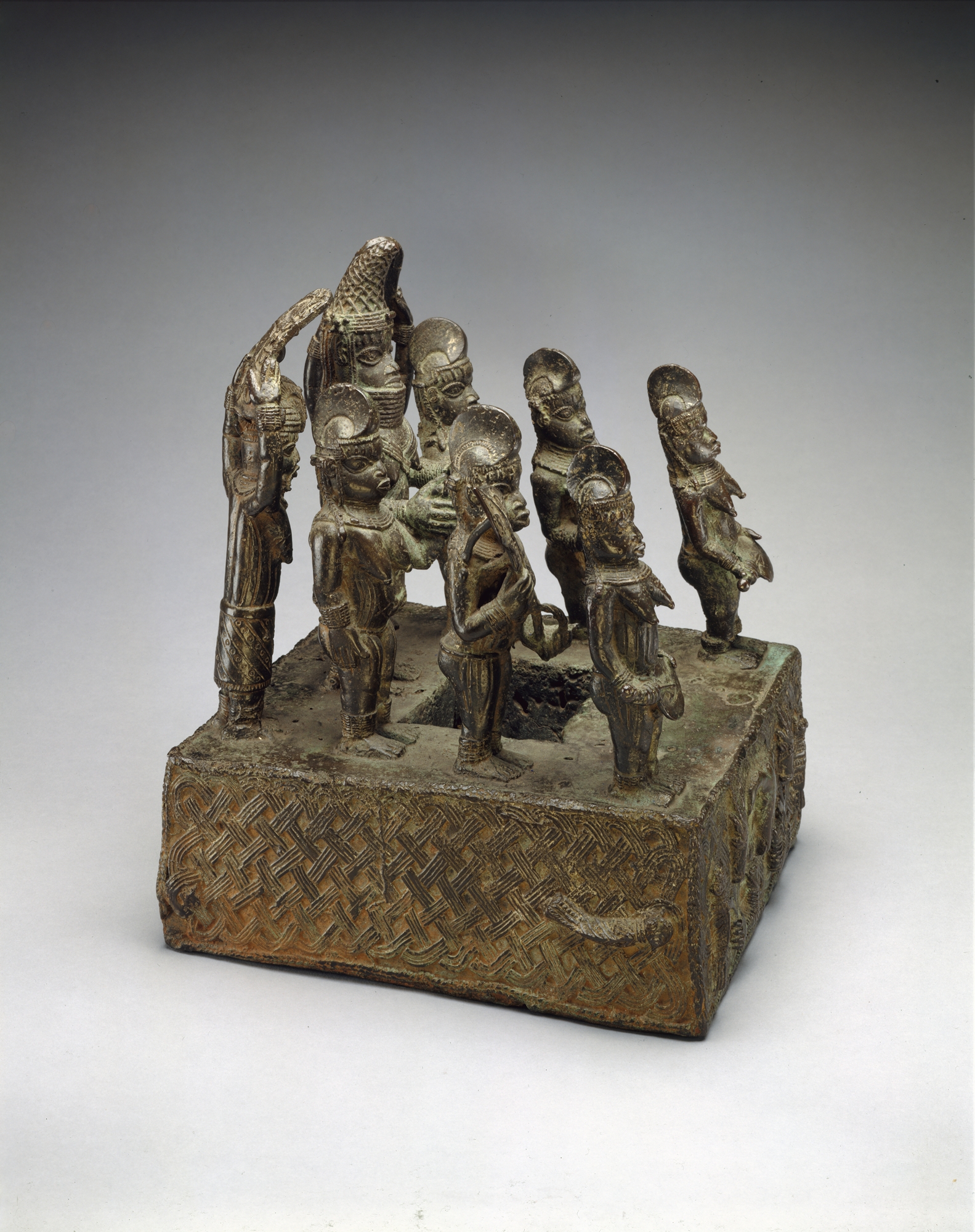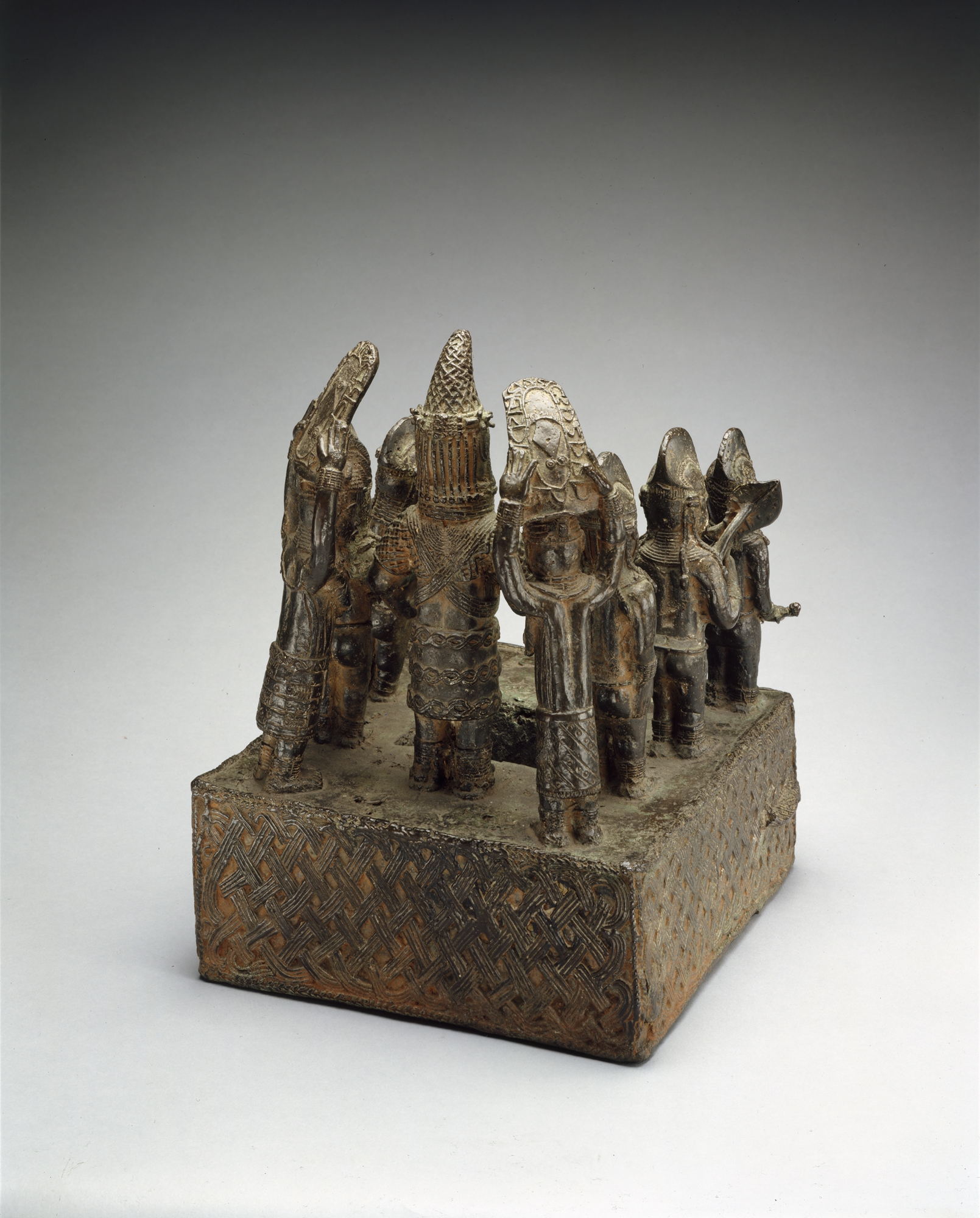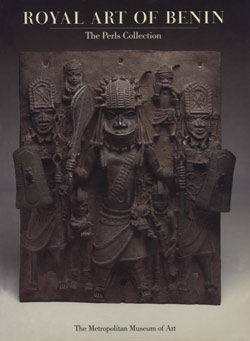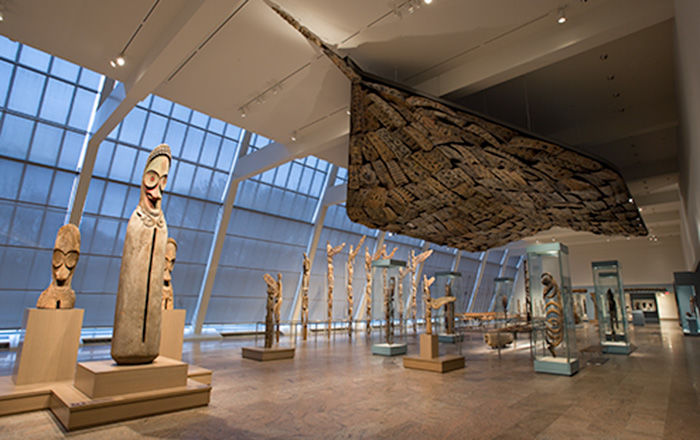Altar Tableau: Queen Mother and Attendants
Not on view
This cast brass tableau, or urhoto, was originally displayed on an ancestral altar dedicated to the mother of a ruler of the Benin kingdom. The queen mother, or iyoba, occupies an important place within the political hierarchy of the Benin court. By protecting the health and well-being of her son, she helps to safeguard the security and prosperity of the entire kingdom. In light of her position, she is entitled to certain prerogatives enjoyed by high-ranking male titleholders, such as a luxurious palace, a coterie of attendants, and the right to commission sculpture in ivory and brass. After her death, a large altar dedicated to her memory is constructed within the palace and decorated with an assemblage of sculptures that celebrate her achievements and facilitate communication with her spirit in the afterlife.
This urhoto is composed of nine figures upon a rectangular base with a square opening at the center. Motifs referring to her strength and achievements such as mudfish and elephant trunks with hands holding leaves, and those of sacrificial offerings in the form of goat and ram heads, appear on the sides of the base superimposed over an interlace pattern. Above, the iyoba is shown surrounded by a group of eight female servants. Similar to other examples of royal art from Benin, the iyoba's superior rank is communicated through her greater scale and the detailed depiction of coral bead regalia. She wears the peaked crown traditionally associated with her position, as well as a cylindrical collar, netted shirt, and crossed bandoliers worn by high-ranking chiefs. The female attendants who surround the iyoba carry insignia of the iyoba's importance, including circular fans and a sword and staff of authority. Two young women stand on either side of the queen mother to support her arms, an arrangement also assumed by the king when appearing in state. Behind her, a pair of attendants hold shields above her head to protect her from the sun.
The unique crested hairstyle and abundant coral ornaments found on the attendants mark them as women destined for marriage to the king or other major political figures. Raised in the palace by the iyoba herself, their sophistication and education make them valuable partners for powerful courtiers.
Due to rights restrictions, this image cannot be enlarged, viewed at full screen, or downloaded.
This artwork is meant to be viewed from right to left. Scroll left to view more.


